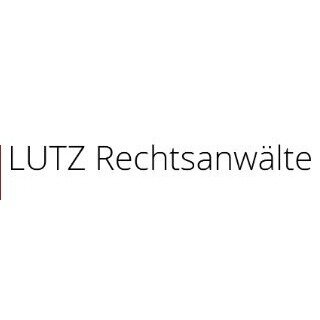Best Conveyancing Lawyers in Stuttgart
Share your needs with us, get contacted by law firms.
Free. Takes 2 min.
Free Guide to Hiring a Real Estate Lawyer
List of the best lawyers in Stuttgart, Germany
About Conveyancing Law in Stuttgart, Germany
Conveyancing refers to the legal process of transferring ownership of real estate property from one party to another. In Stuttgart, Germany, this involves a detailed and regulated process governed by both national and local laws. Conveyancing typically covers both residential and commercial real estate transactions, ensuring clear legal title, appropriate registration, and the settlement of any financial or legal encumbrances on the property. The process is designed to safeguard the interests of buyers, sellers, and lenders, making expert legal advice essential for navigating each step efficiently and lawfully.
Why You May Need a Lawyer
There are several situations in Stuttgart where a legal professional’s expertise is crucial during conveyancing:
- Drafting or reviewing purchase contracts to avoid unfavorable terms
- Conducting due diligence to confirm the property’s legal status and uncover potential liabilities
- Managing negotiations and resolving disputes between buyers and sellers
- Ensuring proper registration of the property transfer in the local land register (Grundbuch)
- Facilitating financing arrangements or clearing encumbrances such as mortgages or liens
- Advising non-German or non-local buyers and sellers about legal requirements
- Managing inheritance issues or transfers via donations
- Overseeing compliance with municipal planning and zoning laws
Given these complexities, obtaining legal guidance helps prevent costly mistakes, legal disputes, or delays.
Local Laws Overview
Conveyancing in Stuttgart is primarily governed by the German Civil Code (Bürgerliches Gesetzbuch - BGB), the Land Registration Act (Grundbuchordnung), and various municipal regulations. Notable aspects include:
- Notarial Involvement: All real estate transfers must be notarized by a qualified notary (Notar) to be legally binding. The notary handles contract drafting, oversees signing, and submits necessary documents to the land registry.
- Land Register: Property ownership and related rights are officially documented in the Grundbuch, managed by the local district court. Accurate and timely registration is vital for legal security.
- Preemptive Rights: Certain parties (such as municipalities) may have right of first refusal on particular properties, affecting the transaction process.
- Financing and Liens: Liens or mortgages must be properly registered, managed, or removed within the conveyancing process.
- Transfer Taxes and Fees: Real estate transactions are subject to land transfer tax (Grunderwerbsteuer) and notary or administrative fees, which must be considered in budgeting.
- Special Considerations: Stuttgart’s regulations include specific planning, heritage protection, and zoning laws, as well as rights for tenants in rental dwellings being sold.
Frequently Asked Questions
What does a notary do in the conveyancing process?
The notary drafts the sale contract, ensures both parties are informed of their rights and obligations, oversees contract signing, and submits necessary documents for registration with the land registry.
Is it mandatory to use a lawyer for property purchases in Stuttgart?
While a notary must always be involved by law, having a lawyer is not mandatory but is strongly recommended to protect your interests, especially in complex or high-value transactions.
How is property ownership officially transferred in Stuttgart?
Ownership passes to the buyer upon registration of the transaction in the land register (Grundbuch). This process is managed through the notary’s submissions.
What is the land transfer tax and who pays it?
The Grunderwerbsteuer or land transfer tax is a state tax applied to real estate transactions, typically paid by the buyer. In Baden-Württemberg, where Stuttgart is located, the rate is currently 5 percent of the property value.
Can foreigners buy property in Stuttgart?
Yes, there are no general legal restrictions on foreign buyers acquiring real estate in Stuttgart, though financial and residency requirements may affect individual transactions.
What due diligence should be done before buying property?
Buyers should verify the property’s legal status, encumbrances, cadastral boundaries, compliance with local planning rules, and ensure there are no outstanding debts or legal disputes related to the property.
What happens if a property has an existing mortgage?
The notary arranges for the old mortgage to be paid off and removed from the land register during the transaction, often using the purchase price funds provided by the buyer or their lender.
Is it possible to back out of a signed real estate contract?
Generally, once signed and notarized, contracts are binding. Withdrawal is only possible under specific circumstances outlined in the contract, such as failure to secure financing by a deadline or legal defects in the transaction.
How long does the conveyancing process take in Stuttgart?
Typically, it takes 6 to 12 weeks from signing the contract to completion, depending on the speed of financing, registration, and removal of any encumbrances.
What are the typical costs involved in conveyancing?
Costs include notary fees, land register fees, land transfer tax (typically paid by the buyer), possible lawyer fees, and costs for any required translations or certifications.
Additional Resources
Individuals seeking more information or assistance related to conveyancing in Stuttgart can consult the following resources:
- Stuttgart’s local Notary Public offices for notarization requirements and services
- The Grundbuchamt (Land Registry Office) at Stuttgart District Court for questions regarding land registration
- Baden-Württemberg Chamber of Notaries for information about notarial procedures
- German Bar Association (Deutscher Anwaltverein) for a list of qualified real estate lawyers
- Stuttgart City Planning Office (Stadtplanungsamt Stuttgart) for local zoning and planning regulations
- Tax advisors (Steuerberater) for guidance on transfer tax and related fiscal implications
Next Steps
If you are considering buying, selling, or transferring property in Stuttgart, Germany:
- Gather all relevant documents related to the property, including title deeds, previous contracts, and land register extracts.
- Consult with a real estate lawyer experienced in German conveyancing law for personalized advice, especially if there are unique circumstances such as inheritance or co-ownership.
- Contact a qualified notary early in the process, as contractual agreements must be notarized to be legally effective.
- Budget for all associated costs, including taxes and professional service fees.
- Ensure proper due diligence is performed, with checks for encumbrances, planning restrictions, and legal compliance.
- If you are a foreign national, seek advice on residency, financing, and any language barriers to ensure a smooth transaction.
By following these steps and leveraging local professional support, you can complete your property transaction securely under the laws of Stuttgart, Germany.
Lawzana helps you find the best lawyers and law firms in Stuttgart through a curated and pre-screened list of qualified legal professionals. Our platform offers rankings and detailed profiles of attorneys and law firms, allowing you to compare based on practice areas, including Conveyancing, experience, and client feedback.
Each profile includes a description of the firm's areas of practice, client reviews, team members and partners, year of establishment, spoken languages, office locations, contact information, social media presence, and any published articles or resources. Most firms on our platform speak English and are experienced in both local and international legal matters.
Get a quote from top-rated law firms in Stuttgart, Germany — quickly, securely, and without unnecessary hassle.
Disclaimer:
The information provided on this page is for general informational purposes only and does not constitute legal advice. While we strive to ensure the accuracy and relevance of the content, legal information may change over time, and interpretations of the law can vary. You should always consult with a qualified legal professional for advice specific to your situation.
We disclaim all liability for actions taken or not taken based on the content of this page. If you believe any information is incorrect or outdated, please contact us, and we will review and update it where appropriate.










